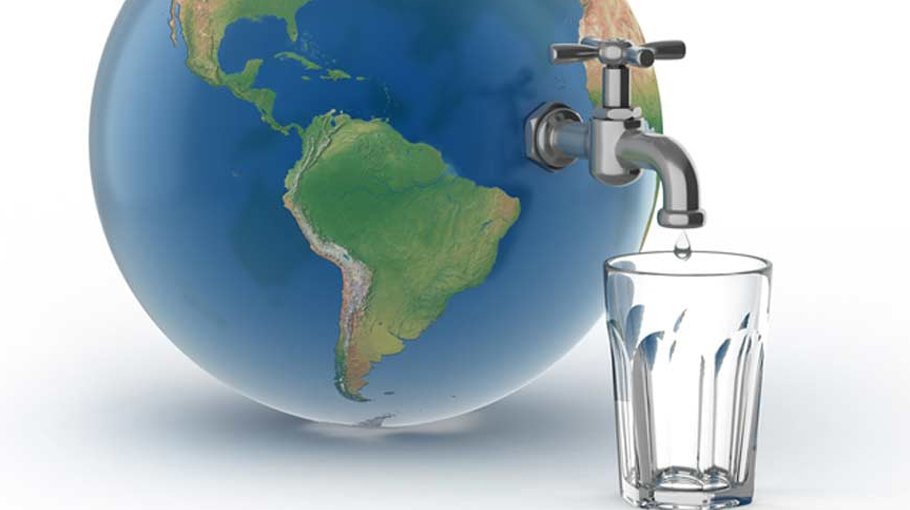The harrowing truth of the global water crisis

Water, often referred to as the elixir of life, is an essential resource without which no living being can survive. Unfortunately, the pressing issue of worldwide water scarcity has become an alarming reality that threatens the well-being of both people and the planet. As populations grow, climate change intensifies, and unsustainable water management practices persist, the global water crisis looms larger than ever.
Water scarcity is an urgent global issue that affects billions of people every year, and the outlook for the future is increasingly worrisome. Disturbing statistics reveal that an astonishing four billion individuals experience water scarcity for at least a month annually, a figure expected to rise in the years ahead.
Several key factors contribute to this growing water crisis. The world’s ever-expanding population is a significant driver of water scarcity. With more people needing water for drinking, sanitation, and food production, existing water resources are stretched to their limits.
Climate change exacerbates the water crisis by causing erratic weather patterns, prolonged droughts, and increased evaporation. These climatic shifts result in less predictable and accessible water sources. Simultaneously, inefficient water use and management practices, such as excessive irrigation, industrial pollution, and inadequate sewage treatment, further deplete and contaminate water resources.
Groundwater, a vital source of water for many regions, faces unsustainable depletion due to excessive pumping. Falling water tables and the alarming rate of aquifer depletion pose significant challenges. Moreover, water pollution compounds the problem. Industrial discharges and agricultural runoff contaminate existing water sources, rendering them unsafe for consumption and necessitating costly treatment processes.
The consequences of global water scarcity are profound and far-reaching, affecting people, ecosystems, and economies. In regions without access to clean water, the toll is particularly severe, resulting in waterborne diseases, malnutrition, and inadequate sanitation. Vulnerable populations, including children and the elderly, suffer increased morbidity and mortality.
Agriculture, as the largest consumer of water worldwide, faces a harsh reality with reduced crop yields and escalating food prices. The ensuing food insecurity and economic hardships are especially burdensome for farmers, particularly in developing countries.
Aquatic ecosystems pay a steep price as well, enduring reduced water flows and heightened pollution. This culminates in the degradation of aquatic habitats, a decline in aquatic species, and a substantial loss of biodiversity.
Industries that rely on water for their manufacturing and production processes face mounting operational costs due to the necessity for advanced water treatment procedures. Furthermore, water scarcity disrupts supply chains, potentially resulting in economic downturns.
The UAE has been proactive in implementing various strategies and technologies to address this issue. Here are some of the key initiatives and measures the UAE has taken to tackle water scarcity:
1. Desalination: Desalination is a critical component of the UAE’s water supply strategy. The country is a global leader in desalination, with a significant portion of its freshwater supply coming from desalination plants that convert seawater into potable water. The UAE has invested heavily in advanced desalination technologies to ensure a reliable source of freshwater.
2. Water Reuse: The UAE has implemented wastewater treatment and reuse programs to maximise the use of available water resources. Treated wastewater, often referred to as “treated sewage effluent,” is used for irrigation and in industrial processes, reducing the demand on freshwater sources.
3. Water-Efficient Agriculture: The UAE has promoted water-efficient agricultural practices such as precision farming and hydroponics, which use less water and allow for the cultivation of crops in controlled environments.
4. Smart Irrigation: The UAE encourages the use of smart irrigation systems that monitor soil moisture and weather conditions, ensuring that water is used efficiently in landscaping and agriculture.
5. Research and Innovation: The UAE has invested in research and development to explore innovative technologies for water production and management. This includes the development of technologies like forward osmosis, which can improve the efficiency of desalination processes.
6. Water Conservation Programmes: The government has launched awareness campaigns and programs to educate the public and businesses about the importance of water conservation. These initiatives encourage responsible water use at the individual and community levels.
7. Diversification of Water Sources: The UAE has explored various sources of water, including treated wastewater and brackish water, to diversify its water supply. This helps reduce the stress on freshwater sources.
8. Water Pricing and Regulation: The UAE has implemented water pricing mechanisms to promote responsible water use and to fund water infrastructure and sustainability initiatives. Water regulation ensures that water resources are managed efficiently.
9. Green Building Standards: The UAE has adopted green building standards that promote water-efficient fixtures, appliances, and landscaping in new construction and retrofit projects.
10. International Cooperation: The UAE is actively involved in international partnerships and agreements related to water resources, fostering cooperation in addressing regional water challenges.
The UAE’s approach to water sustainability reflects a commitment to inclusivity and taking action to secure the country’s future. This strategy has profound implications for the UAE’s security and economic road map towards achieving net-zero emissions.
The country’s upcoming role as the host of the 28th Conference of the Parties to the UN Framework Convention on Climate Change (COP28) signifies the nation’s commitment to placing water security and sustainability at the forefront of the global climate action agenda.
This opportunity will allow the UAE to build on the positive momentum generated by the Water Action Decade, the UN 2023 Water Conference, and the Water Action Agenda as they welcome the world for COP28 in November.
Dr Hamed Bin Mohamed Khalifa Al Suwaidi is the Founder and President of the Al Suwaidi Foundation, Chairman of the Board of Trustees of the Abu Dhabi Arts Society (ADAS), and Advisory Council Member of Cambridge Institute for Sustainability Leadership.
Source: Gulf News



